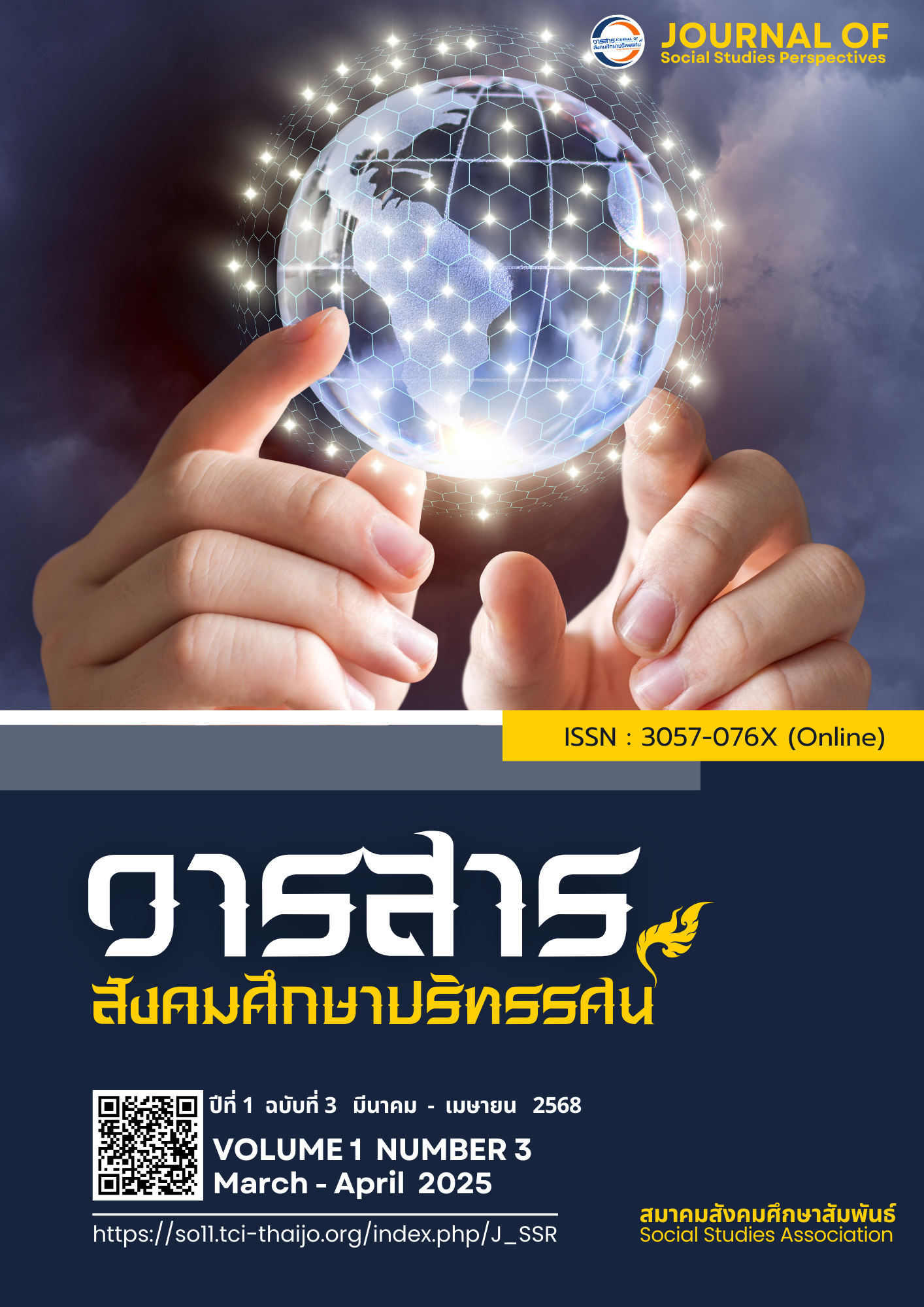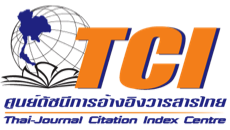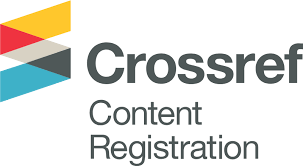ภาวะผู้นำเชิงจริยธรรมของผู้บริหารสถานศึกษาในยุคการเปลี่ยนแปลงสมัยใหม่
DOI:
https://doi.org/10.64186/jsp1468คำสำคัญ:
ภาวะผู้นำเชิงจริยธรรม, ผู้บริหารสถานศึกษา, การเปลี่ยนแปลงยุคใหม่บทคัดย่อ
บทความวิชาการนี้กล่าวถึงผู้บริหารสถานศึกษาเป็นบุคคลสำคัญที่มีบทบาทชี้นำและจัดการองค์กรการศึกษาโดยเฉพาะในยุคสมัยที่เต็มไปด้วยความเปลี่ยนแปลงอย่างรวดเร็วและซับซ้อน ภาวะผู้นำเชิงจริยธรรมถือเป็นตัวแปรสำคัญในการเสริมสร้างความไว้วางใจ ยกระดับคุณภาพขององค์กร ยกระดับคุณภาพการศึกษา และปลูกฝังวัฒนธรรมที่แข็งแกร่งในการดำเนินงานของสถานศึกษา การบริหารโดยยึดหลักจริยธรรมมุ่งเน้นองค์ประกอบสำคัญ เช่น ความซื่อสัตย์ ความยุติธรรม ความรับผิดชอบ ความเคารพ และความเอาใจใส่ องค์ประกอบเหล่านี้ส่งผลต่อประสิทธิภาพในด้านวิชาการ การพัฒนาและดูแลบุคลากร ตลอดจนการบริหารงบประมาณ
ในบริบทของโลกที่พัฒนาและเปลี่ยนแปลงอย่างไม่หยุดนิ่งความคิดเกี่ยวกับภาวะผู้นำเชิงจริยธรรมจำเป็นต้องปรับเปลี่ยนให้เหมาะสมกับสถานการณ์ที่เกิดขึ้น บทความนี้ได้นำเสนอแนวทางการพัฒนาภาวะผู้นำเชิงจริยธรรมสำหรับผู้บริหารสถานศึกษาโดยเน้นการพัฒนาทักษะการเพิ่มพูนองค์ความรู้และการปรับตัวเข้าสู่ยุคดิจิทัล เพื่อให้ผู้บริหารสามารถนำพาองค์กรเดินหน้าสู่ความสำเร็จได้อย่างยั่งยืน
เอกสารอ้างอิง
Boonliang, S., & Watthanapradit, K. (2025). Young leaders create happiness in organizations.
MCU Peace Journal, 13(1), 435–446.
Brown, M. E., & Treviño, L. K. (2006). Ethical leadership: A review and future directions.
The Leadership Quarterly, 17(6), 595–616.
Chammanee, E., & Khumkhainam, T. (2021). Components of ethical leadership of
school administrators under Secondary Educational Service Area Office 21. Proceedings of the 22nd National Academic Conference, March 25, 2021, Khon Kaen University.
Chanpirun, M. (2023). Ethical leadership of educational administrators under Khon Kaen
Primary Educational Service Area Office 3 Master’sthesis, Mahamakut Buddhist University.
Chomsang, S., & Chaowchai, S. (2024). An analysis of the components of ethical leadership of
educational administrators under Sukhothai Primary Educational Service Area Office 2. Journal of Educational Research, Faculty of Education, Srinakharinwirot University, 19(2), 29.
Chotiklang, P. (2023). Ethical leadership of school administrators and teachers' quality of work
life in schools under Bangkok Secondary Educational Service Area Office 1 [Master’s
thesis, Silpakorn University].
Hersey, P., & Blanchard, K. H. (1982). Management of organizational behavior: Utilizing human
resources (4th ed.). Prentice Hall.
Jiranakul, P. (2019). The relationship between transformational leadership and the
effectiveness of personnel management of school administrators in Mae Fah Luang
District under Chiang Rai Primary Educational Service Area Office 3 [Independent study, master’s degree in educational administration, University of Phayao.
Jirajet, W. (2023, December 25). Goodbye VUCA, here comes BANI: Encouraging school directors
to adapt to change. Retrieved from https://www.educathai.com/knowledge/articles.
Karakose, T. (2007). High school teachers' perceptions toward ethical leadership in Turkey. Asia
Pacific Education Review, 8(3), 464–477.
Keattikan, K., & Pongpattarakan, P. (2024). Needs, necessities, and guidelines for
the development of digital leadership of school administrators under Phitsanulok
Primary Educational Service Area Office 3. Journal of Modern Learning Development,
(9), 203–220.
Kirk, V. (2025, February 19). What is ethical leadership and why is it important? Harvard Division
OfContinuing Education (DCE). Retrieved from https://professional.dce.harvard.edu/blog/what-is-ethical-leadership-and-why-is-it-important/.
Northouse, P. G. (2007). Leadership: Theory and practice (4th ed.). Sage Publications.
Nualkaew, Y., & Jindarak, P. (2024). Educational leadership in the Roman Catholic sect in
the BANI era. Journal of the Thai Association of Educational Administrators (ATEAP),
(2), 435–450.
Panphet, K. (2022). Ethical leadership based on wisdom principles for school administrators in
the 4.0 era. Educational Review Journal, 9(1), 491–498.
Phuwijit, C. (2022). Educational leadership in a volatile world. Retrieved from
http://www.nidtep.go.th/2017/publish/doc/20220906-1.pdf.
Rukit, W., Khositpimanwetch, E., & Kangpeng, S. (2024). Moral and ethical leadership of
educational administrators in a changing world. Maneechatram Wat Chommani
Journal, 7(2).
Supattra, R. (2022). 21st-century leadership of educational administrators. Mahamakut
Buddhist University.
Vilailak, R., Ekrit, K., & Somrit, K. (2024). Ethical leadership and ethics of school administrators
in a world of change. Maneechatram Wat Chommani Journal, 7(2), 1–15.
Wilai, L. (2024). Ethical leadership of educational administrators amid modern changes
Doctoral dissertation, Yala Rajabhat University.
Wisedonwai, J. (2022). Goodbye VUCA, here comes BANI: Encouraging school principals to
adapt to change. Educathai. Retrieved from https://www.educathai.com/knowledge/articles/652.
ดาวน์โหลด
เผยแพร่แล้ว
รูปแบบการอ้างอิง
ฉบับ
ประเภทบทความ
หมวดหมู่
สัญญาอนุญาต
ลิขสิทธิ์ (c) 2025 วารสารสังคมศึกษาปริทรรศน์

อนุญาตภายใต้เงื่อนไข Creative Commons Attribution-NonCommercial-NoDerivatives 4.0 International License.
บทความนี้ได้รับการเผยแพร่ภายใต้สัญญาอนุญาต Creative Commons Attribution-NonCommercial-NoDerivatives 4.0 International (CC BY-NC-ND 4.0) ซึ่งอนุญาตให้ผู้อื่นสามารถแชร์บทความได้โดยให้เครดิตผู้เขียนและห้ามนำไปใช้เพื่อการค้าหรือดัดแปลง หากต้องการใช้งานซ้ำในลักษณะอื่น ๆ หรือการเผยแพร่ซ้ำ จำเป็นต้องได้รับอนุญาตจากวารสาร










